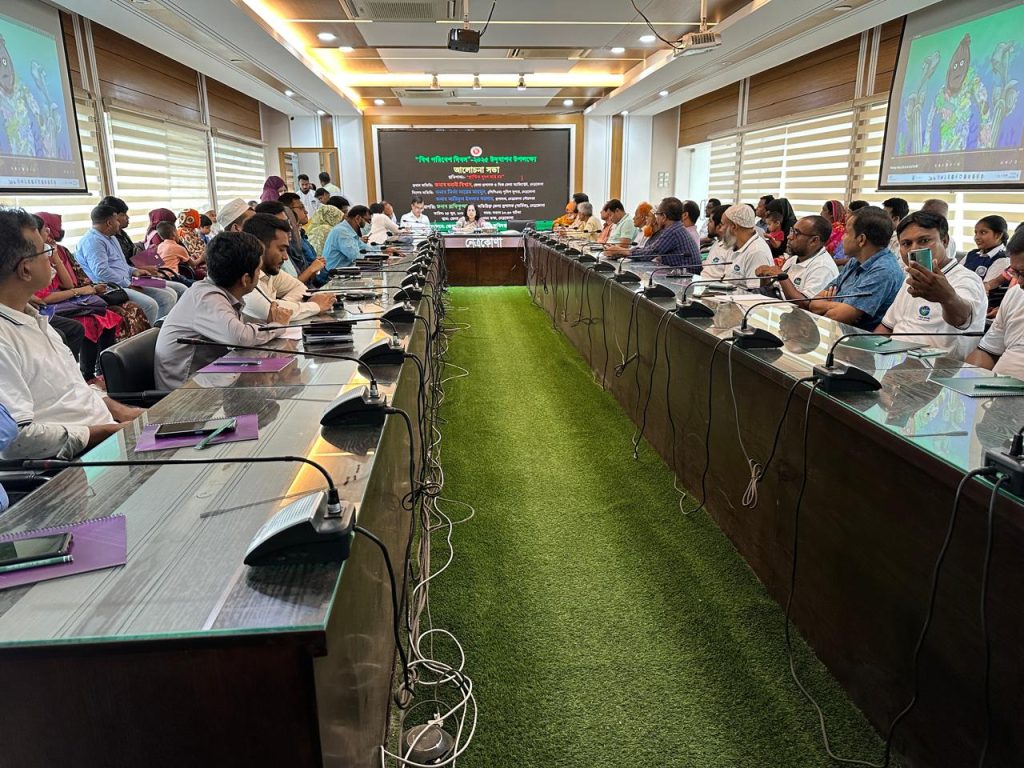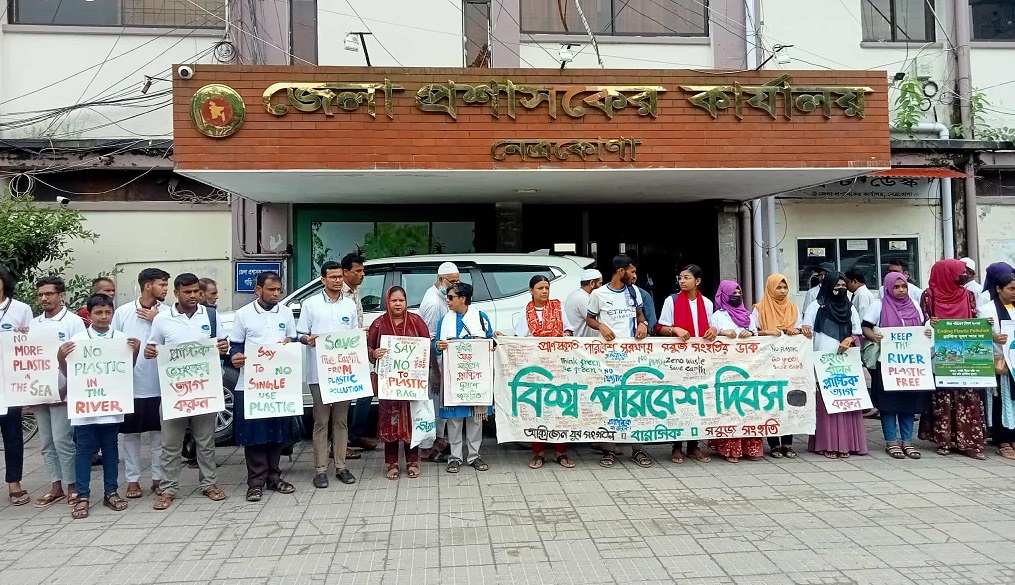By Khadija Akter and Rukhsana Rumi
Plastic has been termed a “silent killer of civilization” due to its devastating impacts on people and the environment. Speakers at an event in Netrakona emphasized that tackling plastic pollution requires coordinated action among the government, producers, and consumers, along with the development of viable alternatives and sustained public awareness.

World Environment Day was observed across Bangladesh. In Netrokona, the district administration and the Department of Environment organized colorful programs in collaboration with BARCIK and like-minded organizations to mark the very day.
The observance included rallies, discussions, and prize-giving ceremonies at the premises of the Deputy Commissioner’s Office and Netrokona Sadar Upazila. The rally paraded through the town’s main streets.
Deputy Commissioner Banani Biswas attended the discussion as chief guest, with Additional Deputy Commissioner Rafiquzzaman presiding over the session. Other guests and participants included Additional Deputy Commissioner and Municipal Administrator Ariful Islam Sardar, Additional Superintendent of Police Mirza Sayem Mahmud, Assistant Director of the Department of Environment Abdullah Al Matin, Press Club Secretary M. Kibria Helim Chowdhury, journalist Alpana Begum (General Secretary of the Education, Culture, Environment and Diversity Protection Committee), Mirza Hriday Sagar of Green Coalition, BARCIK’s Regional Coordinator Md. Ohidur Rahman, NGO representatives, youth groups, and students.

In her remarks, DC Banani Biswas said, “We all talk about awareness at the discussion table, but our own use of plastic does not decrease. Declaring polythene bans at the district, upazila, or divisional levels achieves little if people remain unaware. It is not enough for the government to act alone; everyone must work together. Rivers, ponds, and the environment belong to all of us, and protecting them is everyone’s responsibility.”
Participants proposed reducing plastic use, developing accessible and eco-friendly alternatives, and enhancing public awareness. The program concluded with the distribution of prizes among winners of essay and art competitions.
